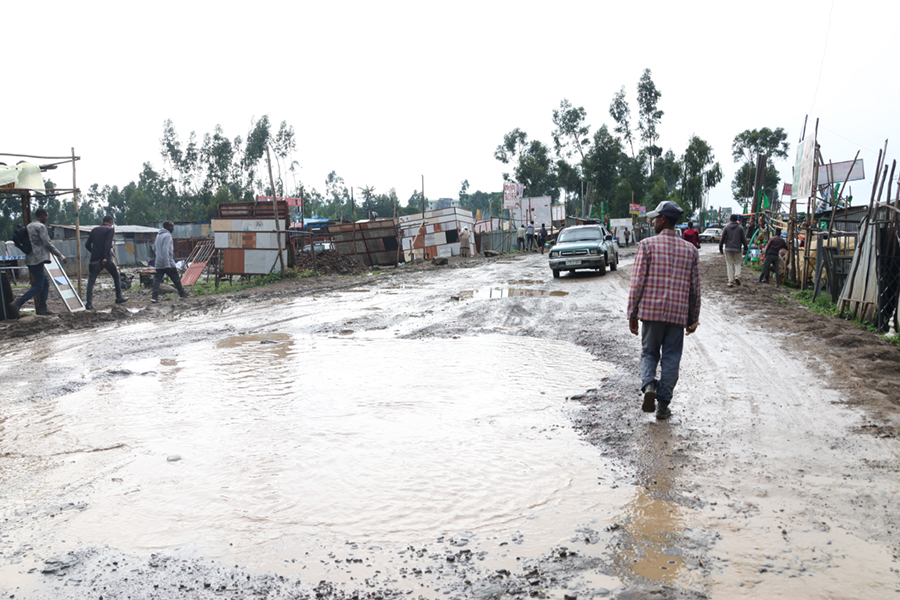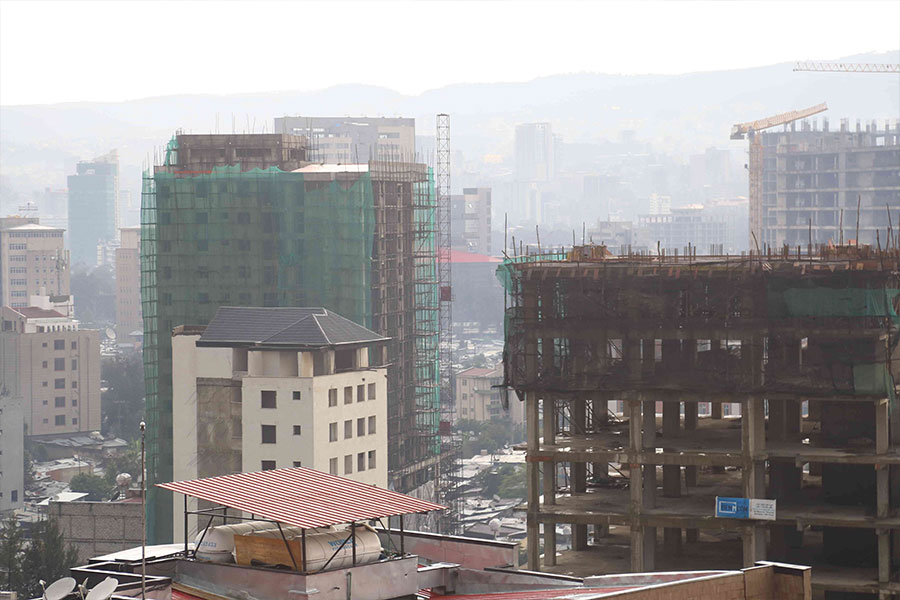
Fortune News | Nov 23,2019
Jan 26 , 2019
By
Ethiopia recently amended its refugee law, granting asylum seekers a range of rights available in only a few other places around the world.
It is now “one of the most progressive refugee policies in Africa,” according to the United Nation’s High Commissioner for Refugees.
The amendments to the 2004 refugee law are hard not to praise for their broad-mindedness and for the benefits that they provide to over 900,000 Somali, Sudanese, South Sudanese and Eritrean refugees currently residing in camps within the country. It is a landmark law that paves the way to the same political freedoms enjoyed by Ethiopians and should serve as a model to combat the xenophobia that has grown rampant around the world.
The law allows refuges access to primary education and health services on par with Ethiopians. It also grants them the freedom of movement and, more importantly, access to favourable employment opportunities equal with other non-nationals under Ethiopian law. This is a liberal policy if there ever was one and is in keeping with the nation’s long history of an open-door policy.
Despite the ambition of the amendments, it has a lot to do with the Jobs Compact program. African migrants drowning in the Mediterranean on their way to Europe, and the less than liberal public sentiments flourishing on the continent, have prompted actions to try to address the problem at the root, or at least somewhere along its chain. Political and economic reform in countries where migrants are coming from has been discussed as one solution.
The other has been supporting countries with large migrant populations. Europeans are essentially making it clear that while they are willing to support migrants, by paying the bills, they do not want to do it within their continent. This was the case with the deal reached between the European Union and Turkey in 2016, where the latter agreed to host refugees in return for favourable policies, such as on aid.
The Jobs Compact is different and has already been tried in Jordan. The Middle Eastern country hosts hundreds of thousands of Syrian refugees. In return for providing work permits to the migrants and employment quotas, the EU made exporting from certain industrial parks in Jordan easier.
The Jobs Compact Ethiopia got is not much different. Under review since 2016, the 500-million-dollar program will be funded by the UK Department for International Development, the World Bank and the European Investment Bank. It is aimed at providing employment opportunities to 100,000 people, just about a third of it for refugees.
It should sound like a win-win situation. The refugees get jobs, the nation gets even more employment opportunities, the Ethiopian government is not overly burdened, and Western countries can support migrants from a distance.
But the refugee law will reverberate past the Jobs Compact it is aimed at facilitating. The program will not be able to address the socio-political consequences of allowing such a large number of people the right to free movement within the country and grant some of the most favourable employment opportunities to non-nationals.
In an ideal world, this is a policy that every country should follow. In the real one, however, nations that are unprepared to open sufficient employment opportunities for their own citizens, provide adequate services to the public and fail to properly integrate refugees within their territories should steer clear of such open-door policies.
Making the Jobs Compact work is thus only the beginning and perhaps the easiest part of the task that lies ahead. What comes next should be an across the board agreement between regional and local governments over the handling of migrants, transparency with the public and a means of directing the state to work for the benefit of its people, including all that come from elsewhere to join it.
If this does not happen, we will have only succeeded in giving radical groups and political parties that pander to xenophobia punching bags in times of economic crisis.
PUBLISHED ON
Jan 26,2019 [ VOL
19 , NO
978]

Fortune News | Nov 23,2019

Agenda | Jul 07,2024

Editorial | Jun 17,2023

Life Matters | Mar 25,2023

Fortune News | Oct 06,2024


Radar | May 31,2025

Life Matters | Oct 12,2019

News Analysis | Jul 03,2021

Fortune News | Dec 21,2022

Photo Gallery | 176312 Views | May 06,2019

Photo Gallery | 166528 Views | Apr 26,2019

Photo Gallery | 157012 Views | Oct 06,2021

My Opinion | 136900 Views | Aug 14,2021

Dec 22 , 2024 . By TIZITA SHEWAFERAW
Charged with transforming colossal state-owned enterprises into modern and competitiv...

Aug 18 , 2024 . By AKSAH ITALO
Although predictable Yonas Zerihun's job in the ride-hailing service is not immune to...

Jul 28 , 2024 . By TIZITA SHEWAFERAW
Unhabitual, perhaps too many, Samuel Gebreyohannes, 38, used to occasionally enjoy a couple of beers at breakfast. However, he recently swit...

Jul 13 , 2024 . By AKSAH ITALO
Investors who rely on tractors, trucks, and field vehicles for commuting, transporting commodities, and f...

Oct 18 , 2025
The political establishment, notably the ruling party and its top brass, has become p...

Oct 11 , 2025
Ladislas Farago, a roving Associated Press (AP) correspondent, arrived in Ethiopia in...

Oct 4 , 2025
Eyob Tekalegn (PhD) had been in the Governor's chair for only weeks when, on Septembe...

Sep 27 , 2025
Four years into an experiment with “shock therapy” in education, the national moo...

Oct 18 , 2025 . By NAHOM AYELE
In a sweeping reform that upends nearly a decade of uniform health insurance contribu...

A bill that could transform the nutritional state sits in a limbo, even as the countr...

Oct 18 , 2025 . By SURAFEL MULUGETA
A long-planned directive to curb carbon emissions from fossil-fuel-powered vehicles h...

Oct 18 , 2025 . By BEZAWIT HULUAGER
Transaction advisors working with companies that hold over a quarter of a billion Bir...